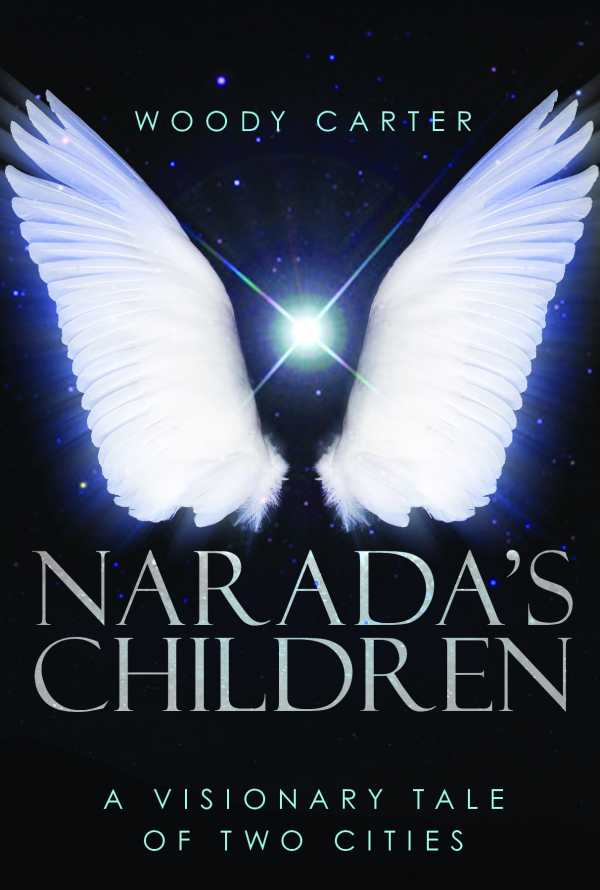Narada's Children
A Visionary Tale of Two Cities
- 2016 INDIES Finalist
- Finalist, Religious (Adult Fiction)
Narada’s Children is an exceptional reminder that the past is alive within us, and that all of our actions stand to resonate far beyond our own lives.
Woody Carter’s Narada’s Children is a transcendent novel in which a mysterious man wanders out of the desert and into a complex human story that defies the bounds of time. Wondrous prose and magical, interreligious themes make for absorbing reading.
Opening pages have a biblical flavor: Narada emerges from the barren sands of Africa to encounter beautiful Hohete at a well. She takes him to her father’s house in the gated city of Ja’Usu to rest and recover. The town’s patriarchs feel threatened by Narada’s presence, and are convinced that he is a jinn who has come to subvert their power. Narada assures them that he only wants to introduce one thing into Ja’Usu’s atmosphere: a story. For seven nights, the townspeople gather around a fire to hear a tale that Narada has drawn from the unbound, time-fluid annals of the universe, of a man named Arthur in a city called Oakland, some two hundred years in the future.
Though they don’t recognize many of the features of Arthur’s life, the people of Ja’Usu find themselves relating his story to their own, particularly when he encounters romantic troubles or in his struggles to make life better for the marginalized people of Oakland in its African-American community. Working through his difficulties, they begin to challenge their own. A hyena-man reconsiders his future plans; a widow considered cursed hopes anew to find love again. Even the patriarchs themselves move forward in subtle and important ways.
The novel has elements of the mythical and parabolic, and is notable for the elegance with which it weaves features of various world religions into its complex stories. Santeria and Christianity are present, as are Buddhism and, late in the novel, a Jewish mystic’s creation myth. Narada himself is aligned to the original “storytellers,” from whose imaginations the universe was born. No whole religion is given preferential treatment, and all traditions are treated with respect and reverence.
Narada himself is an awe-inducing character who rescues children from hyenas and gracefully stays one step ahead of those who would trap him. He is calm as he defies limiting social standards, and wise as he directs those in need to more hopeful futures. Characters who may not be deities are also well-articulated in the story, with Arthur’s foibles teased out in a relatable way, and his ability to leave his body given fascinating context; Hohete is shown to be a complex and aspirational woman, despite the limitations of her gender and time period; and trouble between a patriarch and his prodigal brother is brought into epic relief. Even the specter in Arthur’s building who plots dark deeds is a full character by the novel’s end.
The story trades between its disparate time periods beautifully, drawing from all an acute sense of the qualities that bind human beings together, and of interconnection that goes beyond chronological time. Those concerned with the marginalization of certain communities will find much to engage here; so will those who long for spiritual and epic adventures.
Carter’s is a novel that fits neatly into no category, but manages to enchant on all fronts. Narada’s Children is an exceptional reminder that the past is alive within us, and that all of our actions stand to resonate far beyond our own lives.
Reviewed by
Michelle Anne Schingler
Disclosure: This article is not an endorsement, but a review. The publisher of this book provided free copies of the book and paid a small fee to have their book reviewed by a professional reviewer. Foreword Reviews and Clarion Reviews make no guarantee that the publisher will receive a positive review. Foreword Magazine, Inc. is disclosing this in accordance with the Federal Trade Commission’s 16 CFR, Part 255.

